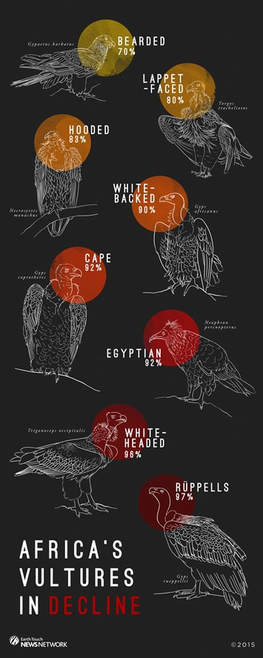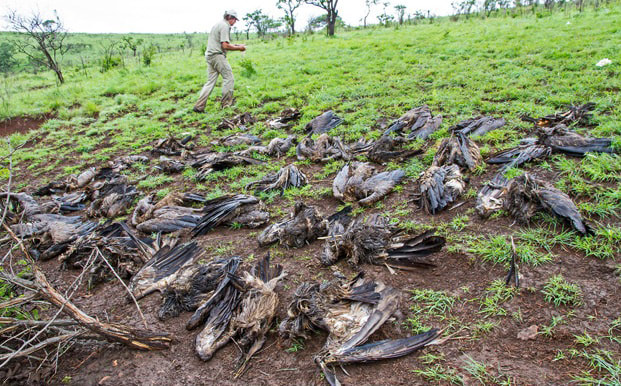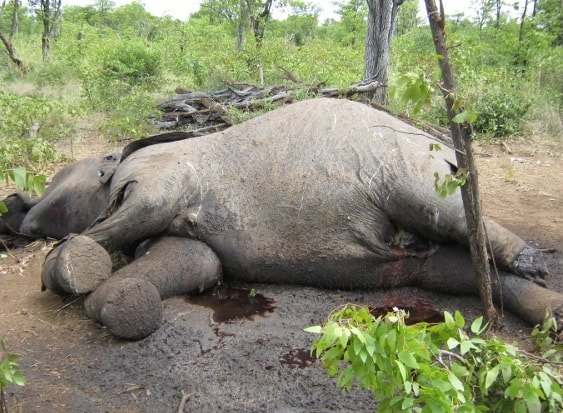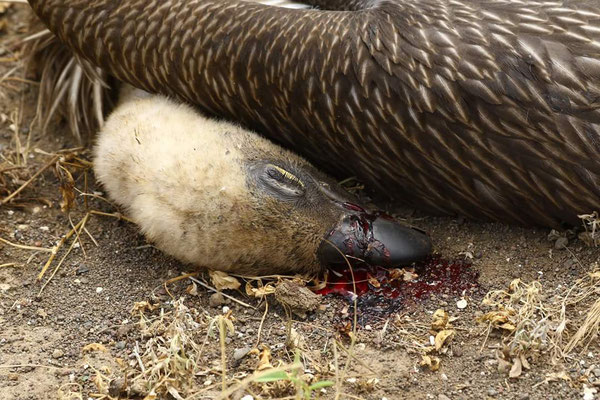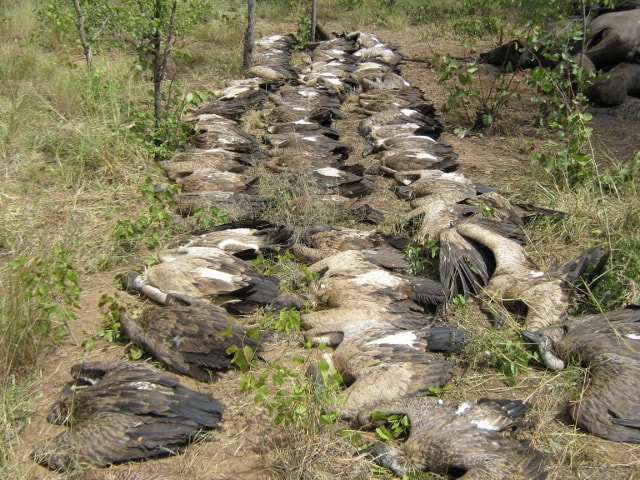Poisoning is the main threat our vultures face, and the majority of vulture deaths seem to be indiscriminate – a by-product of people trying to poison predators and inadvertently attracting vultures to the carcass.
-Masumi Gudka, BirdLife Africa's Vulture Conservation Manager.
|
Vulture Poisoning
2) Unintentional poisoning. Farmers often come into conflict with large carnivores hunting their livestock. As a result, some will poison the carcass of one of their livestock with the intention of targeting carnivores in an area. The unfortunate result is that this unintentionally also targets sometimes hundreds of scavenging animals, including vultures.
Traditional medicines
"30 percent of vulture deaths result from trafficking in vulture parts, which are thought to cure various physical illnesses and psychological ailments in some African cultures. They're also sometimes used as charms for good luck, success or even increased intelligence. In addition, smoked vulture meat is trafficked internationally, much of it coming from West Africa." (Goldman, 2015)
impacts
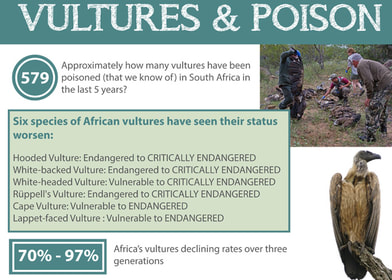
Vultures in Africa are being poisoned for several different reasons, both purposely and accidently. Recently, some of the more nefarious killers have been big game poachers, who have sharply intensified the slaughter of elephants for their ivory and rhinoceroses for their horns, which are valued in Asia for their purported medicinal purposes. In the past three or four years, the poachers have realized that circling vultures are tipping off the authorities to their crimes, so they poison them. Carbofuran [furadan], purple grains that are intended as an insecticide, is the most commonly used poison. (Bodin, Yale Environment 360, 2014)
conservation messaging
Vultures play a vital role in their ecosystems
More resources and articles
Another Continental Vulture Crisis: Africa’s Vultures Collapsing toward Extinction
By Darci Ogada et al., Conservation Letters, 2016 action items
Don't litter!
|

